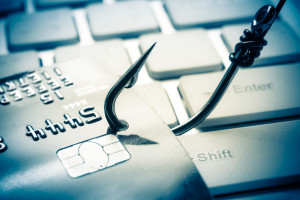 Is data security, online privacy and identity theft a top concern for your business? If it’s not, it should be. Cybercrime is on the rise. More than ever, hackers are successfully stealing information and using it to commit identity theft and fraud.
Is data security, online privacy and identity theft a top concern for your business? If it’s not, it should be. Cybercrime is on the rise. More than ever, hackers are successfully stealing information and using it to commit identity theft and fraud.
Hackers are sealing valuable information from entities of all sizes— such as email accounts, names, birth dates and phone numbers — and then using that information to conduct sophisticated phishing scams to gain access to personal and business accounts. In other instances, criminals gain access to networks and hold company data hostage. Here are some ways that your business can better manage cyber risks:
1) Address your weaknesses and consider the cloud. At home and at the office, you need to invest in technology to help you detect and address threats. You also need to stay up-to-date on the latest technology security news to know if you’re vulnerable. Watch out for news about malvertising attacks and ransomware scams. You also need to pay close attention if you’re part of a larger attack. Speaking of cyber security, did you know that cloud technology is not only scalable and dependable but in many cases is more secure? We can help you explore all of the benefits of migrating to the cloud.
2) Know how to spot a phishing scam. A phishing scam can come in the form of an email, link, or even a telephone call. Cybercriminals will use whatever means they can to install malicious software or access your accounts to steal your personal information. Watch for suspect emails with links (and don’t click them if you aren’t sure if they are legitimate!), phony security alerts, fake websites and out-of-the-blue phone calls where someone says that they can help you solve a computer, account or software issue. Train employees — your front-line defense against cyber risk — how to spot and avoid becoming victims.
3) Know what’s going into your spam and trash folders. If hackers do start trying to access your accounts, one of the first things that can happen is that they’ll reset your passwords to critical accounts (banking, or others) and set a filter so that any email notifications about the changes bypass your inbox. Always watch your email account for unusual activity, and if you see anything strange – such as trash or spam folders emptying themselves — change your password immediately. (In this case, you’ll also want to check your other critical accounts.)
4) Know how to manage your passwords. Activate two-factor authentication whenever possible for business and personal accounts. You can set up a password manager for an added layer of security, get expertise from tech support, or have an IT person set up a password manager.
